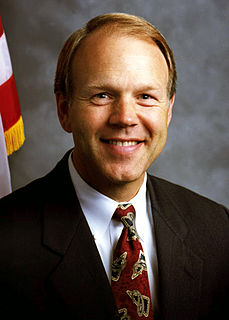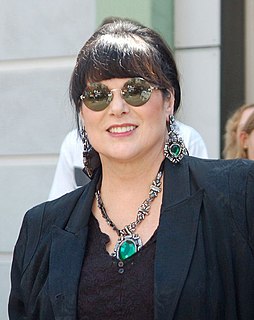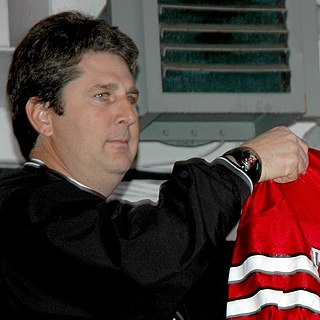A Quote by Ace Frehley
We're bigger now than we were in the late 70s when we were peaking.
Related Quotes
When I was a kid, a lot of my parents' friends were in the music business. In the late '60s and early '70s - all the way through the '70s, actually - a lot of the bands that were around had kids at a very young age. So they were all working on that concept way early on. And I figured if they can do it, I could do it, too.
When you talk to women who were working as print journalists or in broadcasting in the '50s, and then you talk to women who were working in the late '60s, there's an enormous difference. There had already been a huge transition. Then, of course, you get well into the '70s and there were women with children working.
When you have three out of the four largest banks in America today, bigger than they were - significantly bigger than when we bailed them out because they were too big to fail, I think if Teddy Roosevelt were alive today, a good Republican by the way, what he would say is: Break them up; they are too powerful economically; they are too powerful politically.
When I first saw China, there were no automobiles. There were no supermarkets. There were no high-rise buildings. There were no consumer goods. There were no restaurants that were at least accessible that foreigners could see. It was a Stalinist society, and a very poor Stalinist society. So the economic system has totally changed, and the private sector in the economic system is now the dominant sector. It didn't exist at all as late as 1979.
Iron Maiden and Metallica are bigger now than they ever were. They're playing stadiums across the entire planet. Even though it seems like their heyday was back when MTV and the radio played their songs all the time, the truth is that they've gotten bigger now because they play all the time, and people know they're going to get a great show.
In the late '70s, the conditions that bands had to endure were, shall we say, not as civilized as they are today. People were a lot more aggressive back then. So there was definitely a lot of suffering for your art. But I would argue that was a good thing. Generally, people make better music when they suffer.



































